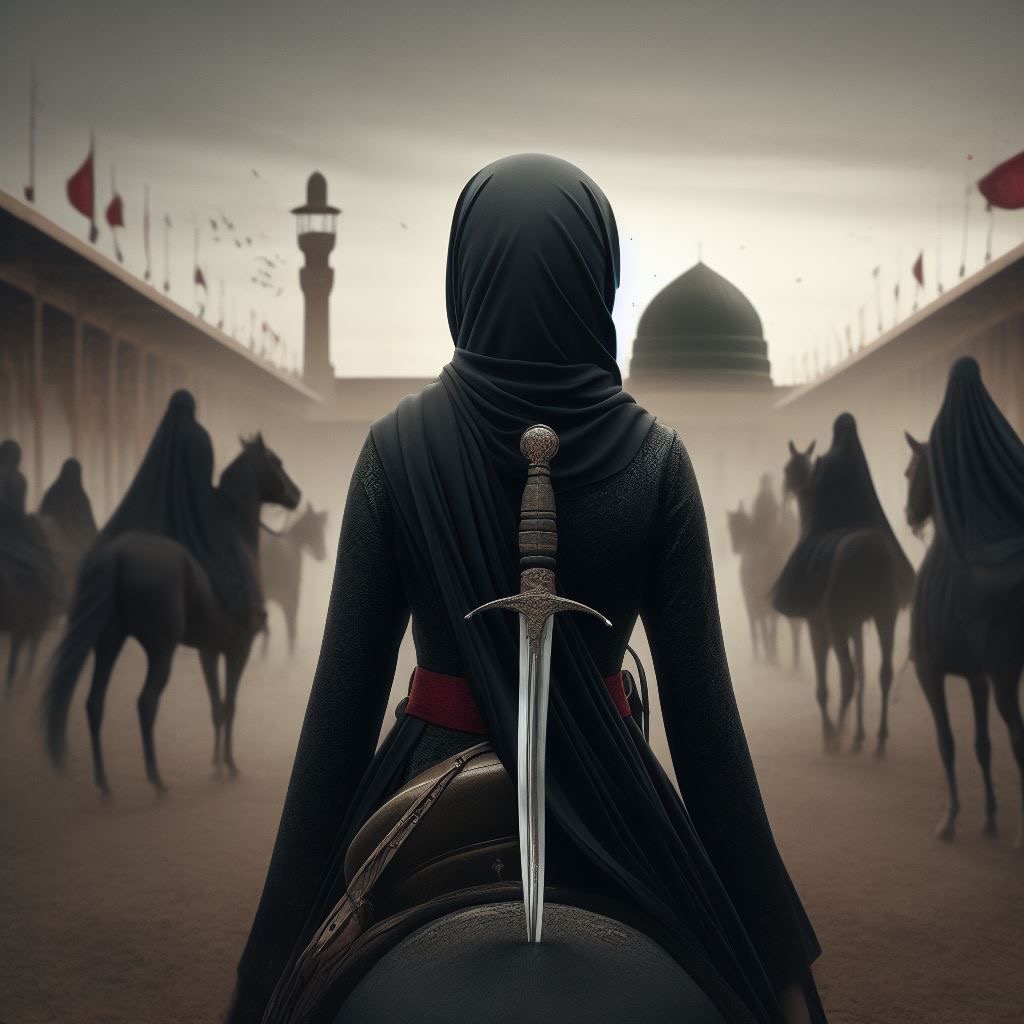Political achievements:
Equal rights are given to women in all sectors. Umar bin Khattab (May Allah be pleased with him) valued the excellent political skills of Shifa’ bint ‘Abdullah (May Allah be pleased with her), such that he often consulted her to gain insights and also entrusted her with the responsibility to run the affairs of the state encompassing trade and commerce.
Before the Hijrah to Madinah, it was due to Ruqayyah bint Saifee’s (May Allah be pleased with her) warning that Prophet Muhammad ﷺ left Madinah discreetly by leaving ‘Ali (May Allah be pleased with him) in his place asleep when the disbelievers plotted a plan to lay siege to his ﷺ house.
A women is also given the right to shelter an enemy if she wishes to do so. The law of Islam is such that the Imaam or a leader has to stand by the guarantee offered by the women. For instance, the sister of ‘Ali (May Allah be pleased with him), Umm Hani (May Allah be pleased with her) granted refuge to an enemy disbeliever and the prophet ﷺ said,
If you have granted sanctuary and safety to a person, then we stand by you. ~Abu Dawood
Knowledge and fine arts:
Many of the women companions were experts in the fields of Shari’ah, Fiqh, the study of Hadith, Quran memorization and other aspects of Islamic studies. ‘Aaishah, Hafsah, Umm Salmah, and Umm Waraqah (May Allah be pleased with all of them) had memorized the Qur’an, and some other women companions knew portions of the Qur’an. The latter used to regularly give lectures on the Qur’an. Saudah (May Allah be pleased with her) recited the Qur’an with accurate tajweed, which was amongst the difficult skills and was highly encouraged. ‘Aaishah (May Allah be pleased with her) also had extensive knowledge in the law of inheritance, such that many of the renowned and respected companions consulted her opinions on the finer points of law. Although the era prior to the advent of prophet Muhammad ﷺ was known as a ‘period of illiteracy’, many of these worthy women were highly educated and displayed exceptional skills in the arts of penmanship and calligraphy.
The women companions had various exceptional skills in various other areas as well. Like Asma’ bint Yazid bin Sakan (May Allah be pleased with her) was an expert in delivering speech, while Asma’ bint Umais (May Allah be pleased with her) was renowned for her interpretation of dreams. Several other women companions like Umm Salim, Hamnah bint Jahash (May Allah be pleased with both of them), and so on were noted for their excellent skills in the field of medicine and surgery. Some of the most noted poetesses were Sa’adi, Safiyyah, ‘Atikah, Bint Zaid, Hind (May Allah be pleased with all of them) and many others. According to a hadith narrated by Fri’ah bint Ma’auth (May Allah be pleased with her), the women who recited their poems in the presence of the prophet ﷺ were appreciated for their literary skills.
Economical achievements:
The Musnad of Imam Ahamed entails agriculture, business, trade, commerce, writing, editing, cottage industries like weaving, manufacture, and so on. Khadija, ‘the mother of the believers’ (May Allah be pleased with her), was a brave and an outstanding business woman during the early period. Asma’ (May Allah be pleased with her) who was among the immigrants, practiced farming. Shifa’ bint Abdullah (May Allah be pleased with her) was among the women who was recognized for her ability to read and write even during the dark ages. Khawlah, Makeelah, Thaqafiyah, and Bint Fakhariyah (May Allah be pleased with all of them) carried out trade in the oriental oil-based perfume called ‘Itar’. Saudah (May Allah be pleased with her) operated a leather tanning firm.
Conclusion
The women are highly valued in Islam and “not oppressed.” They actively took part in various roles ranging from taking part in wars, displaying their skills in numerous firms to their involvement in the propagation of Islam. On concluding, there were no spheres that were not beneficial from their intellect, wisdom, devotion, and gentle yet firm strength of character.


